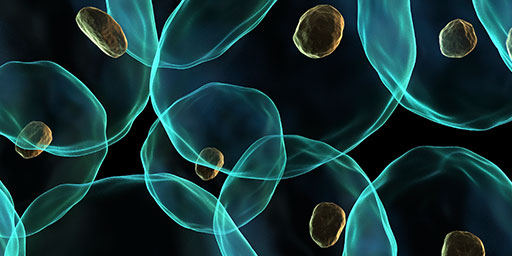EMBRYONIC & ADULT STEM CELLS
Donor age does not likely to influence the capability of stem cells from adult body tissues, latest studies report. The analysis of research on induced pluripotent stem cells proves that not only are typical signs of aging reversed in iPSCs, but cells derived from both older and younger donors show the same potential to differentiate into mature cells. This portrays iPSCs as a viable alternative to embryonic stem cells in regenerative medicine.

Unlike most cells in the body, stem cells develop into different cell types. Their discovery opened the possibility of culturing specific cells to treat damaged tissues, organs, degenerative diseases and genetic diseases.
Stem cells can be derived from two sources: embryos and adult tissues. It was believed that embryonic stem cells are the indispensable source, as these "young" cells have not undergone the same level of cell damage as older cells.
However, embryonic stem cells also have limitations such as ethical concerns, immunological rejection of transplanted tissue derived from ESCs, and limited availability of the donor.
Therefore, it is an unmatchable medicine that has been discovered and there is yet to find out more from the hidden treasure “Stem cells”.
To Know more: https://goo.gl/xuDCNi
Comments
Post a Comment